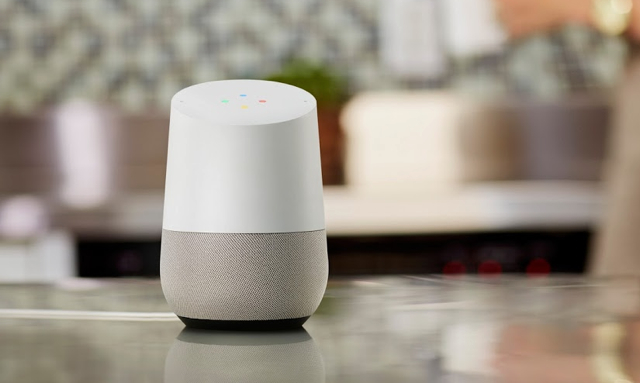Google Blocks Burger King Ad From Activating Google Home
April 14, 2017
Burger King released a TV ad in which an actor activates the Google Home digital assistant to describe the ingredients in the Whopper sandwich. Prompted by the actor, Google Home searches Wikipedia for the Whopper and lists the makings of the sandwich. Within hours of the ad’s release, however, both The Verge and BuzzFeed discovered that the commercial no longer activated the device. Burger King did not work with Google to create this marketing approach, and Google reacted by stymying it.
The New York Times described Google’s action as “an unusual form of corporate warfare in the living room,” although the company would not respond to requests for comment. The Burger King ad was set to air Wednesday night during “The Tonight Show Starring Jimmy Fallon,” “Jimmy Kimmel Live!” and other shows.
Google Home debuted in November and, like Amazon Alexa “wakes up” when users say, respectively, “O.K. Google” or “Alexa.” There have been other incidents of commercials waking up digital assistants, including a Super Bowl ad, and a child’s accidental purchase of a dollhouse. News coverage of the latter event set off another round of “attempted purchases.”
“With the onset of consumers buying intelligent system devices and using them at home, we thought this was a good way to make a connection and go directly to guests and tell a story about our product,” said Burger King president José Cil. The ad, “while novel, raised eyebrows,” especially since Internet-connected digital assistants, which have introduced efficiencies, “have also raised questions about security and privacy.”
Marketing tech company Ahalogy chief Bob Gilbreath notes the risk to Google, especially because “the vast majority of people” are unfamiliar with “such appliances.” “Most people don’t trust advertising, and having advertisers continually listen to what happens in our homes is scary,” he said.
With regard to whether viewers would find the Burger King ad invasive, Cil responded that, “we think about our guests’ perception and their perspective on how we interact with them, but on balance we felt this was a really positive way to connect with them.”
NYT notes that, “more often, companies are trying to avoid waking devices through the television.”


No Comments Yet
You can be the first to comment!
Sorry, comments for this entry are closed at this time.